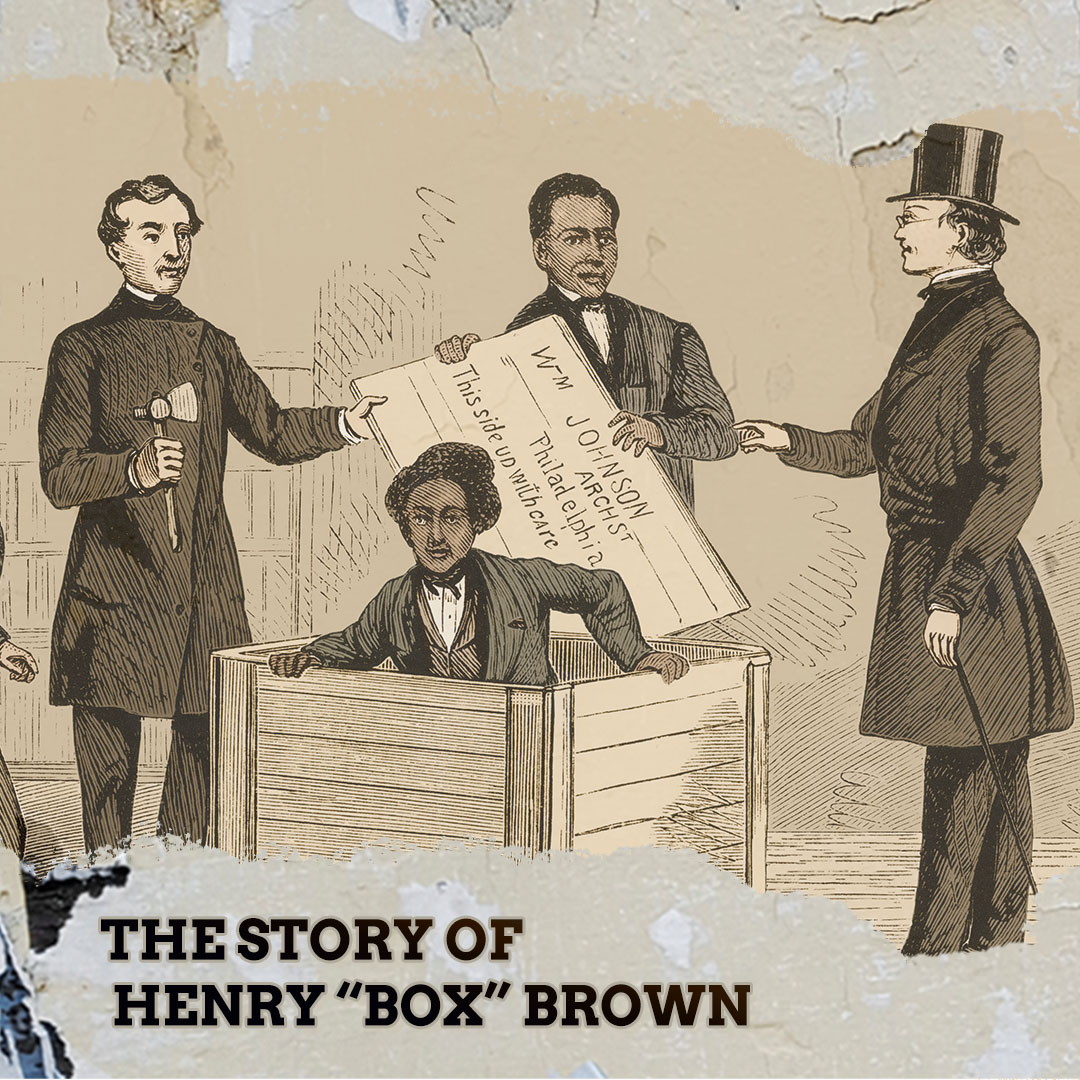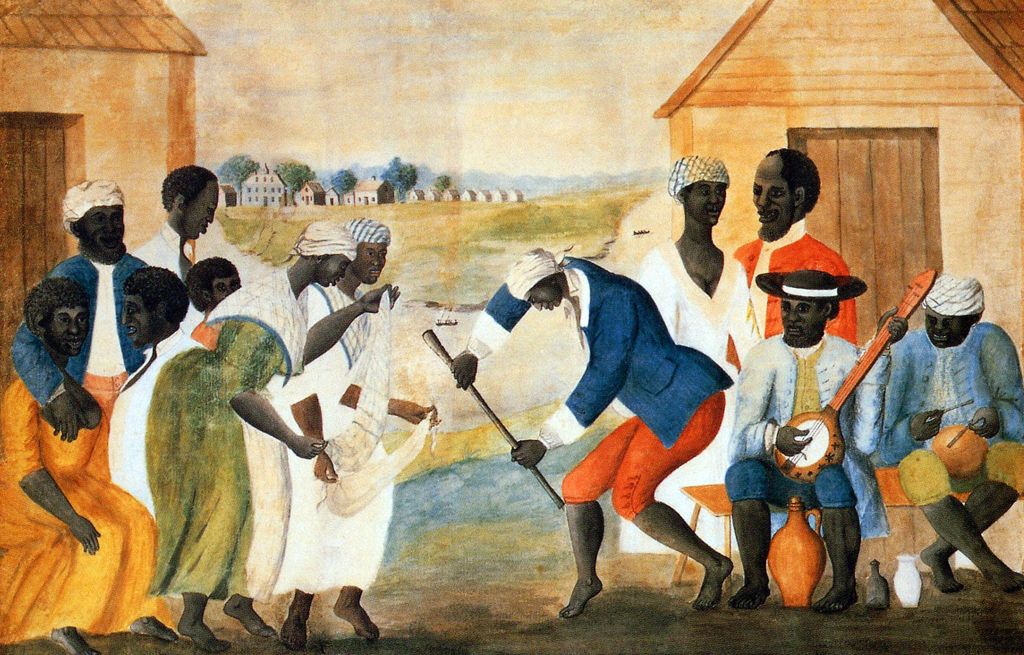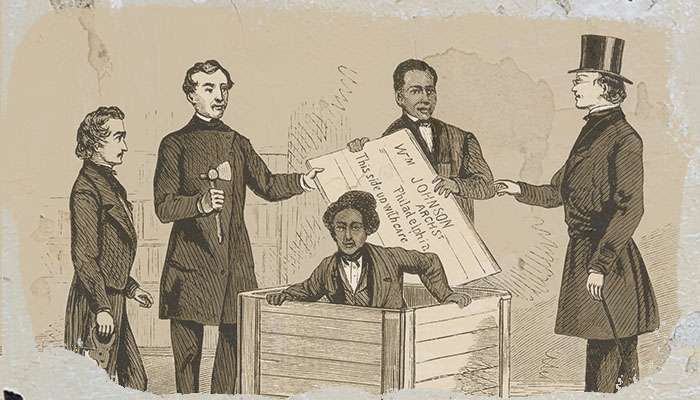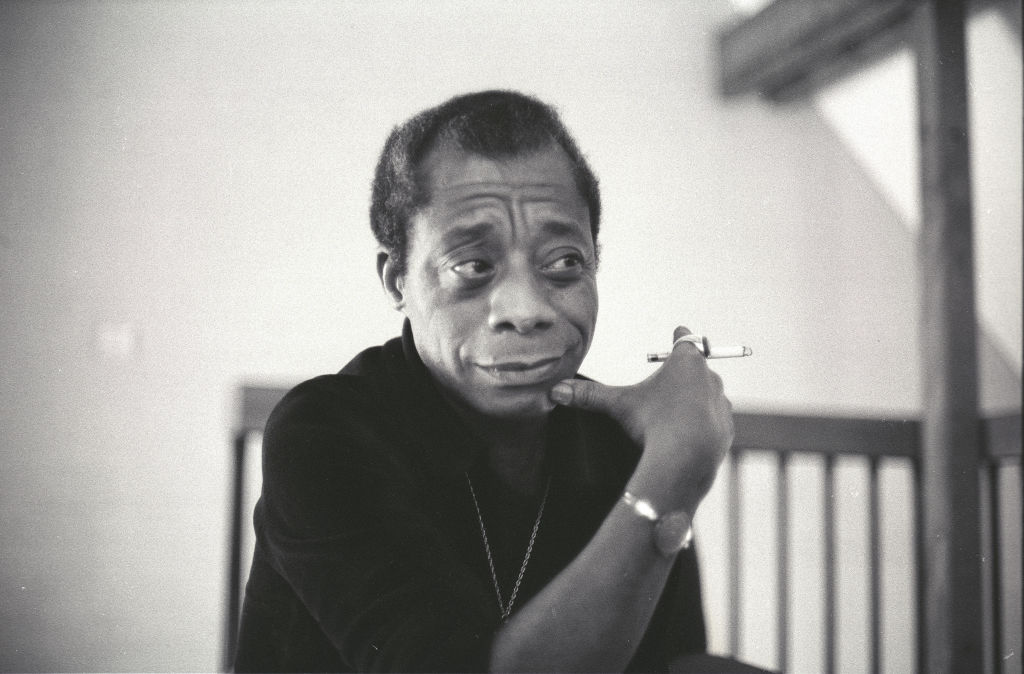This Black Man Mailed Himself To Pennsylvania To Escape Slavery
The Incredible Henry ‘Box’ Brown: This Black Man Mailed Himself To Pennsylvania To Escape Slavery

Source: creative services / iOne Digital
There once was a Black man who, like so many others in the Antebellum south, was trapped under the oppressive thumb of slavery. But one day a magic trick and a box would change his life forever.
MORE: The Haunting Of Lake Lanier And The Black City Buried Underneath
Here is the incredible tale of Henry “Box” Brown, a Black folklore legend that rarely gets his story told.
Henry Brown was born a slave sometime around 1815, in Louisa County, Virginia. As a teenager, Brown’s slave owner became ill and died. Brown then was sold to a slaver in Richmond where he was forced to work at a tobacco factory. Although his life was in complete bondage, he was permitted to take a wife.
The Antebellum south was a violent and horrific time for Black people in America. The economy in the south was booming and White slave owners wanted nothing more than to keep the money rolling in. To do this slave owners allowed some of their slaves to marry and produce children. This ensured more slaves for the white masters to own and or sell.
In 1836 Henry Brown married Nancy and they had three beautiful children. Nancy and the children were then sold to another slave owner who had his own malicious ideas about how to torture Brown and his family.
Using Brown’s family as pawns, Nancy’s new slave master began blackmailing Brown into renting a house for Nancy and the children. If Brown missed payments his family would be sold away. Brown pushed and pushed to continue to make these payments, but eventually, he could no longer meet the slaveholders’ demands and in 1848, his wife and children were sold to a plantation in North Carolina. Brown’s wife was also pregnant with their fourth child when she was sold away. The move almost destroyed Henry Brown. His family meant everything to him and for them to be ripped away from him like that was devastating.
But Brown was a resilient and creative man. He channeled his sadness and anger into an idea that would not only bring him freedom, but it would also bring him fame and fortune. With the help of a Black freeman and a sympathetic white shoemaker, Brown concocted a plan to stuff himself in a box, pretend to be dry goods, and mail himself to the free city of Philadelphia. The idea was insane, but Brown’s freedom meant more than his sanity. With the help of his co-conspirators, Brown commissioned the creation of a wooden rectangular box about three by two feet wide and two and a half feet high, with three small holes for air.
On March 29, 1849, Brown stuffed himself into the tiny box with just a small flask of water and an awl to punch more holes in the box if he needed more air. Brown was then nailed into the box marked, “This Side Up With Care,” and the box was taken to the post office to be shipped.
During the brutal 27-hour trip, Brown was banged and jolted around the entire trip. At one point his box ended up right-side up which he describes as a close-to-death experience.
“I felt my eyes swelling as though they would burst from their sockets, and the veins on my temples were dreadfully distended with pressure of blood upon my head,” Brown wrote. “I felt a cold sweat coming over me that seemed to be warning that death was about to terminate my earthly miseries.”
Before arriving in Philadelphia, Brown’s box made a pit stop in Washington, DC, where it was carried on a wagon to the train depot. Brown worried that the stop would cause his plan to be thwarted so he stayed as quiet and still as he could until his box was back on its journey. It was tossed around and slammed on the ground multiple times, audibly cracking Brown’s neck and knocking him almost unconscious.
Henry’s incredible journey to freedom would end after his box arrived at the headquarters of the Philadelphia Anti-Slavery Society. Brown, excited but beat up and bruised emerged from the box a free man. Elated, but humbled to have survived such a brutal journey, Brown stepped out of the box singing the Bible passage Psalm 40: I waited patiently for the Lord; and he inclined unto me, and heard my cry.

Source: Pictures from History / Getty
Henry Brown, the slave boy who worked on a plantation, was gone forever. He was now Henry “Box” Brown, the first person to ever mail themselves from slavery to freedom.
He became a magician, lecturer, and storyteller, traveling the country and performing his story as well as mocking the ills of slavery. He became a household name and folks all over the country spoke of his tales. He would even perform in front of the likes of Frederick Douglass, who openly disapproved of Brown’s openness to tell the world his story in fear that it would hinder other Black slaves who wanted to follow in his footsteps.
After the Fugitive Slave Act was passed in 1850, Brown’s story and fame would put a target on his back as slave masters around the country felt emboldened to hunt down former slaves who had escaped bondage.
Brown was determined to keep the new life he built, so he moved to Great Britain and continued to build on his lure and legacy. He would stay in England touring the country for the next 25 years where he remarried and fathered a daughter. Although he tried to purchase his first family from slavery, he was never able to do so.
In 1875, he returned to the U.S. a wealthy and well-traveled man. He would continue to perform as a magician in the states as well as Canada until 1889.
Henry “Box” Brown died in Toronto, Canada on June 15, 1897.
Brown’s legacy is unparalleled. His creative and enduring journey led the way for the success of the Underground Railroad. He showed Black slaves all over the south that escaping bondage and creating a life outside of slavery was possible for Black people. He also inspired some famous magicians like Harry Houdini, whose coffin escape trick garnered worldwide recognition.
Henry “Box” Brown here are your flowers. Your fortitude and perseverance deserve to be celebrated with the rest of the Black greats from American history.

Source: creative services / iOne Digital
SEE ALSO:
There’s A Black Village Under Central Park That Was Founded By Alexander Hamilton’s Secret Black Son
The Antebellum Tale Of Black Slave Girl Molly And The Haunting Of Sorrel-Weed House
















